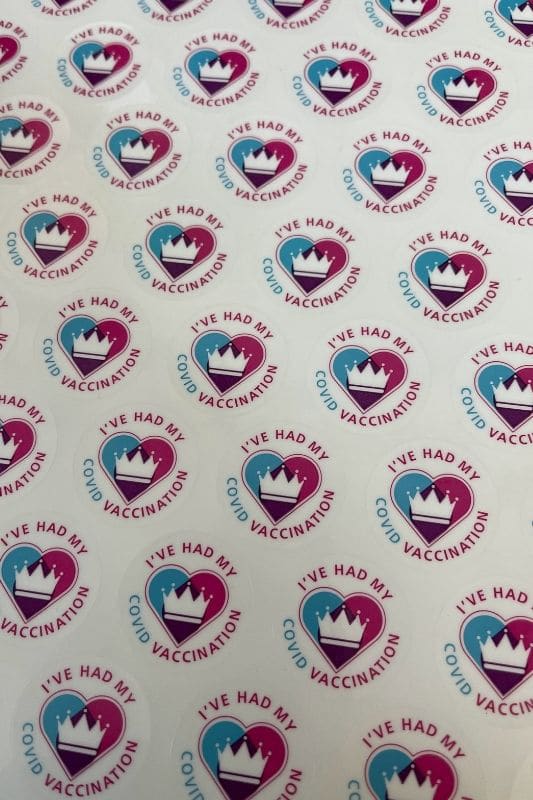Hand Hygiene: Shocking Statistics & How To Take Care of Your Hands
We’ve done the math on how many times nurses perform hand hygiene, plus some shocking facts and a few tips on how to take care of your hands as a nurse.
Our relentless research goes beyond shoes. Capsol allows us to talk all things nursing, from career advice and current news to self-care and mental health. These conversations with you, the community, and the world at large help us put our best foot forward when creating the best nursing shoes on the planet.
The vaccine, or rather, vaccines, are here! They are becoming increasingly available to the elderly, teachers, immunocompromised, and to healthcare workers. But, with the COVID-19 vaccine being so new, there’s a lot of misinformation and misunderstanding surrounding it. We aim to clear up some things.
So you’re vaccinated… now what?
As we all know by now, there are two different vaccines: one is made by Moderna and the other by Pfizer. Though they have some differences between them, we’ll focus mainly on their similarities during this article.
Immunity levels and effects are regularly misconstrued about both vaccines.
For instance, some believe that they are immediately immune following their first COVID-19 vaccination. This is incorrect. According to the latest report from the CDC,
“It typically takes a few weeks for the body to build immunity (protection against the virus that causes COVID-19) after vaccination. That means it’s possible a person could be infected with the virus that causes COVID-19 just before or just after vaccination and still get sick. This is because the vaccine has not had enough time to provide protection.”
It’s also recommended that you still get vaccinated even if you have already had COVID-19. This is because it’s still not understood how long your body has immunity following recovery from the illness.
As NPR points out, it’s also important to remember “Even if your loved one has been vaccinated, they could still become mildly infected.”

Let’s talk about transmission after you have been vaccinated. Transmission of COVID-19 is still possible, and you might not even know that you have it.
With fewer symptoms, you would be less likely to know if you have it. In a recent interview with the CDC, a primary care physician, Lucy McBride, explained it like this,
“Two weeks after your second Pfizer or Moderna vaccine dose, for example, you are essentially immune to COVID-19. But we haven’t yet proven that vaccinated people can’t carry and transmit the virus to other people. And until we have that information and have achieved herd immunity, whereby the virus can’t infect most of the population, we need to adhere to the standard risk mitigation protocols: masking, hand-washing, distancing, and avoiding poorly ventilated, crowded indoor spaces.”
Because most of our vaccines can take years to develop, this has left many wondering how on earth multiple vaccines for COVID-19 were developed so quickly. This is a fairly reasonable question given the fact that other vaccines can take an average of 10 years to develop.
Well, in order to get the COVID-19 vaccine to the market so quickly there were a few things that had to happen.
1. The FDA had to grant it emergency-use approval.
2. A lot of money, we are talking A LOT OF MONEY, was contributed all at once to the development, testing, and rolling out of the vaccine.
3. The virus was developed in a different way. According to the Guardian, “
“…both the Oxford University/AstraZeneca and Pfizer/BioNTech vaccines were developed using different “platform technologies” that involve slotting genetic material from the virus into a tried and tested delivery package. Once introduced into the human body this genetic material is used by the protein-making machinery in our cells to churn out the coronavirus “spike protein”, triggering an immune response. This approach was aided by the speed at which scientists in China identified and shared the genetic sequence of the new coronavirus, and work that was already under way on other coronaviruses.”
Now to further expand on the FDA approval. Typically, for the FDA to approve a new drug or vaccine it would require a lot of data over many years. It would be reviewed several times to make sure that it truly is safe for the public over long-term use. However, in emergency situations, they exclude the need for long-term testing as it would defeat the purpose of the emergency. This means that the COVID-19 vaccine has not been tested for its long-term effects, but is undergoing testing for that as things progress.

Well, now that you have the vaccine, you are more protected against the severe symptoms of COVID-19 according to the data which means that you can rest a little easier knowing that if you do get it, the effects might not be as bad.
However, since you can still pass on the virus to others, you should still be wearing masks especially in high-risk situations or around high-risk individuals. This is particularly important because you might not even know when you have it.
What has been your experience with the vaccine? Do you know a lot of people that have received it? We’d love to hear your experience! Join the conversation below.
Author
most recent
We’ve done the math on how many times nurses perform hand hygiene, plus some shocking facts and a few tips on how to take care of your hands as a nurse.
Celebrate Pediatric Nurses Week as we talk about what pediatric nurses do, ideas for showing appreciation, and a breakdown of how to become one. Don’t miss this!
Ever wonder, what is with nurses and coffee? I mean, why do nurses love coffee? So many of us depend on that rich, hot java to jumpstart a shift.
0 Comments